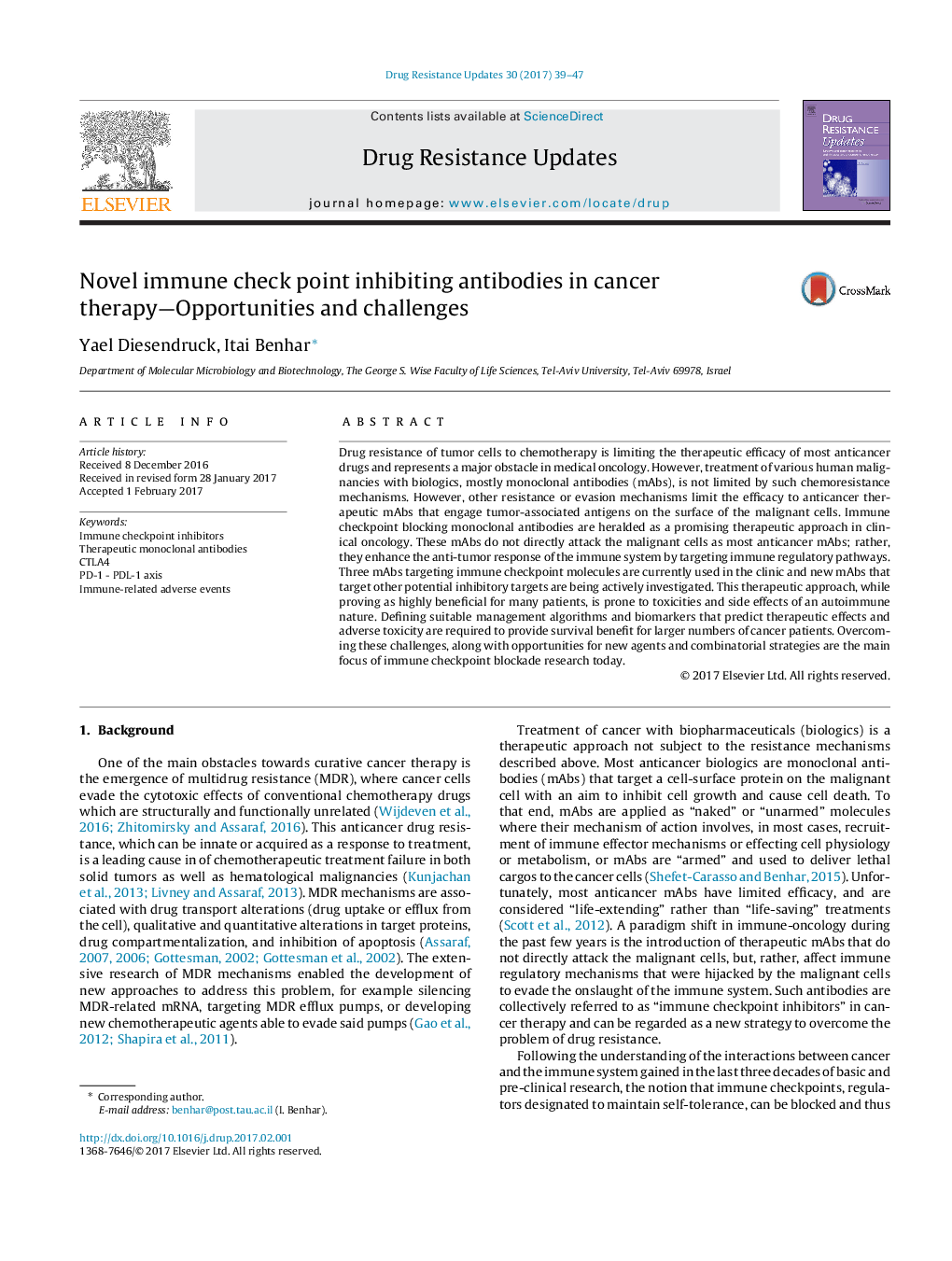| Article ID | Journal | Published Year | Pages | File Type |
|---|---|---|---|---|
| 8436613 | Drug Resistance Updates | 2017 | 9 Pages |
Abstract
Drug resistance of tumor cells to chemotherapy is limiting the therapeutic efficacy of most anticancer drugs and represents a major obstacle in medical oncology. However, treatment of various human malignancies with biologics, mostly monoclonal antibodies (mAbs), is not limited by such chemoresistance mechanisms. However, other resistance or evasion mechanisms limit the efficacy to anticancer therapeutic mAbs that engage tumor-associated antigens on the surface of the malignant cells. Immune checkpoint blocking monoclonal antibodies are heralded as a promising therapeutic approach in clinical oncology. These mAbs do not directly attack the malignant cells as most anticancer mAbs; rather, they enhance the anti-tumor response of the immune system by targeting immune regulatory pathways. Three mAbs targeting immune checkpoint molecules are currently used in the clinic and new mAbs that target other potential inhibitory targets are being actively investigated. This therapeutic approach, while proving as highly beneficial for many patients, is prone to toxicities and side effects of an autoimmune nature. Defining suitable management algorithms and biomarkers that predict therapeutic effects and adverse toxicity are required to provide survival benefit for larger numbers of cancer patients. Overcoming these challenges, along with opportunities for new agents and combinatorial strategies are the main focus of immune checkpoint blockade research today.
Keywords
Related Topics
Life Sciences
Biochemistry, Genetics and Molecular Biology
Cancer Research
Authors
Yael Diesendruck, Itai Benhar,
